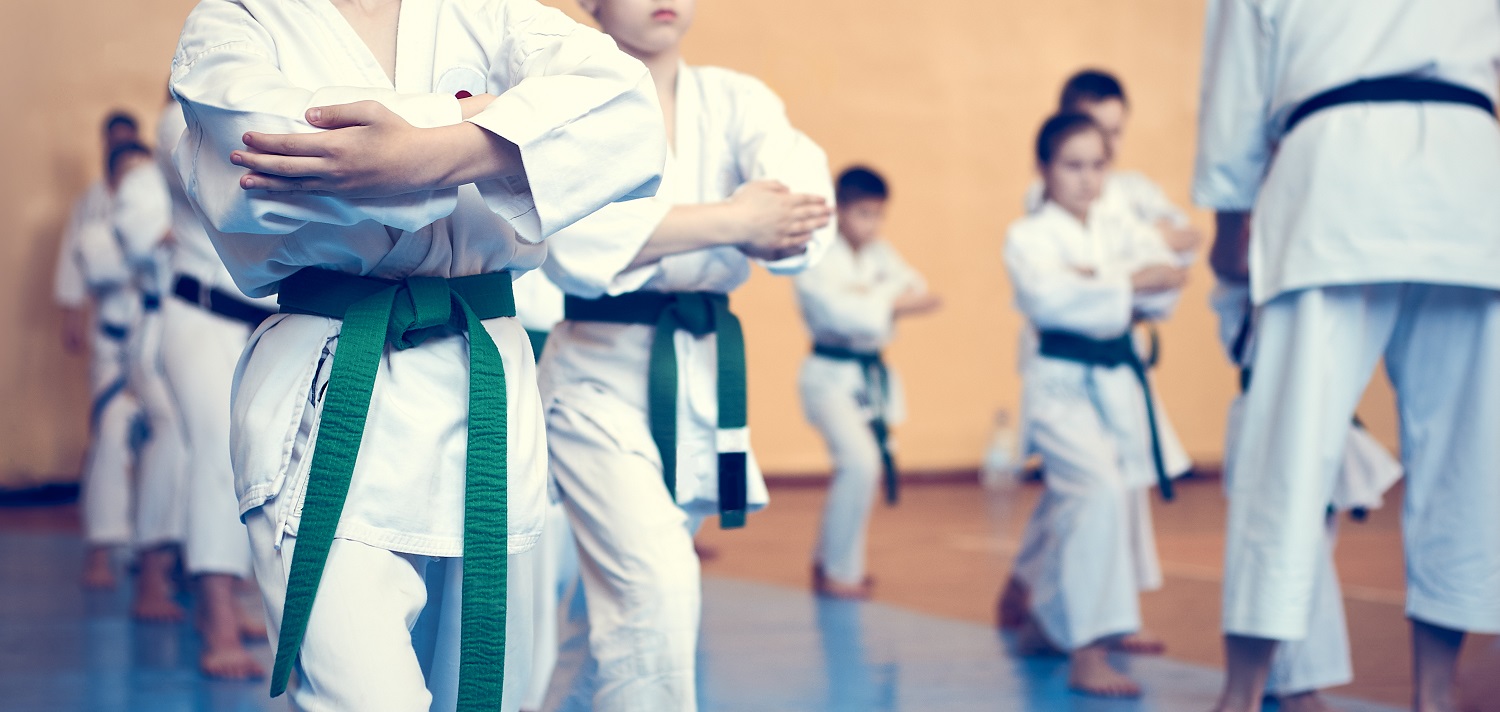
In recent years, karate has gained tremendous popularity as a recreational activity for kids worldwide. Beyond the physical aspect, parents, educators, and researchers are increasingly intrigued by its potential impact on children’s mental well-being.
This blog post delves into the fascinating realm of karate’s influence on kids’ mental health, examining the psychological benefits and positive outcomes it can offer. From boosting self-confidence to promoting emotional regulation and resilience, we’ll explore how karate empowers young minds and contributes to their holistic development.
The Psychological Benefits of Engaging in Karate Practice
Engaging in this practice can lead to a multitude of psychological benefits for kids. Studies show that consistent training helps release endorphins, the “feel-good” hormones, which can uplift mood and combat symptoms of anxiety and depression.
Moreover, this sport requires mental focus and concentration, promoting cognitive development and problem-solving skills. The structured and goal-oriented nature enhances a child’s sense of achievement, leading to a positive impact on their self-esteem and overall mental well-being.
When it comes to karate for kids, this martial art not only shapes their physical prowess but also nurtures their emotional and mental growth.
Boosting Self-Confidence and Self-Esteem through Karate Training
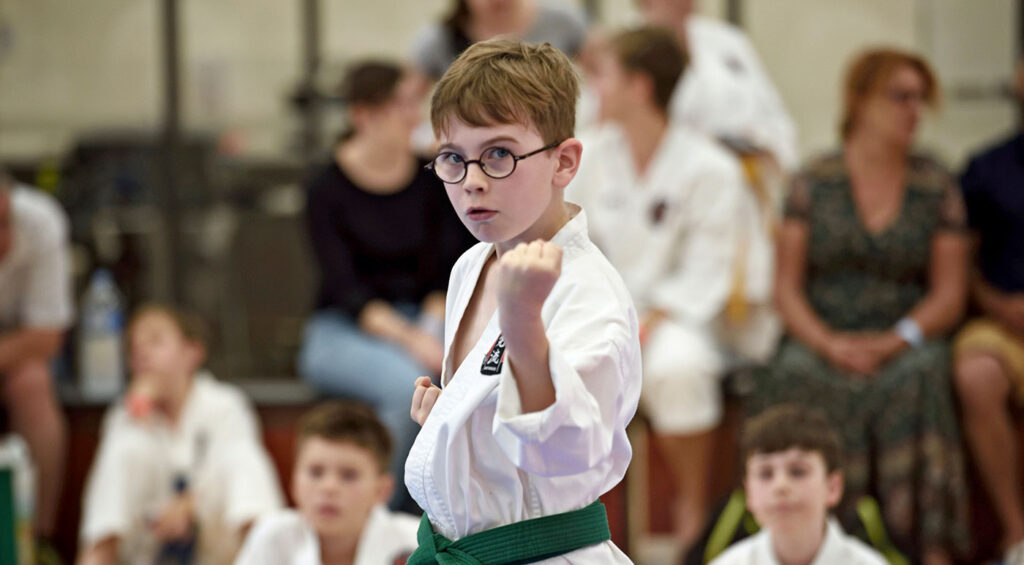
Karate fosters a supportive environment that encourages kids to push their limits and achieve personal goals. As children progress in their training and earn higher belts, they gain a sense of accomplishment and confidence in their abilities.
This newfound self-assurance extends beyond the dojo, positively influencing their interactions with peers and adults alike. This sport instills a belief in oneself, proving transformative for children who may struggle with self-esteem issues, enabling them to tackle life’s challenges with resilience and determination.
Karate as a Means to Reduce Stress and Anxiety in Children
In our fast-paced modern world, children often face stress and anxiety, affecting their mental health and well-being. This sport provides an effective outlet for releasing pent-up emotions and stress through physical activity.
The practice helps regulate stress hormones like cortisol while promoting relaxation and mindfulness. The rhythmic movements and focused breathing also contribute to a state of calmness, equipping children with coping mechanisms that can be invaluable throughout their lives.
Enhancing Discipline and Focus through Karate Exercises
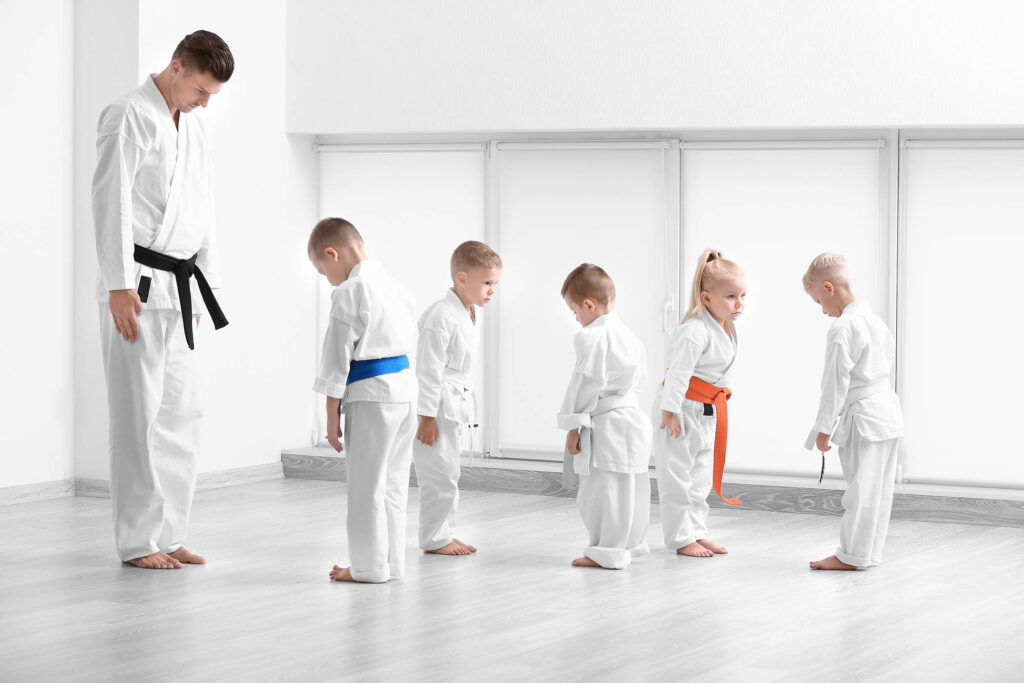
Enhancing discipline and focus through exercises is one of the core benefits for kids. Karate demands strict adherence to its principles and techniques, instilling a strong sense of self-discipline in young practitioners.
The repetitive nature of training cultivates patience and perseverance, essential qualities that carry over into other aspects of their lives. As kids progress through different belt levels, they learn to set goals and work diligently to achieve them, fostering unwavering focus and determination.
The mental engagement required during karate drills sharpens their concentration abilities, helping them stay present and attentive. Overall, the structured and disciplined approach empowers children with invaluable life skills that pave the way for success in academics, sports, and beyond.
Social Development and Building Friendships in Karate Classes
Beyond the individual benefits, this sport offers an excellent platform for children to socialize and build lasting friendships. Regular classes bring kids together, fostering camaraderie and teamwork. Collaborating in partner exercises and sparring helps improve communication skills, empathy, and conflict resolution.
The supportive community within a karate dojo nurtures a sense of belonging, reducing feelings of isolation and promoting a positive social environment that enriches kids’ mental health and emotional development.
Examining the Role of Karate in Improving Emotional Regulation
Emotional regulation is a fundamental aspect of mental health, enabling individuals to manage their emotions effectively.
Training teaches kids to understand and control their feelings, preventing impulsive reactions and aggressive behaviors. Through the discipline of karate, children learn to channel their emotions constructively, transforming negative energy into positive actions.
This newfound emotional intelligence equips kids with the tools to navigate challenges and build healthier relationships, enhancing their mental and emotional resilience.
Addressing Bullying and Developing Resilience with Karate Training
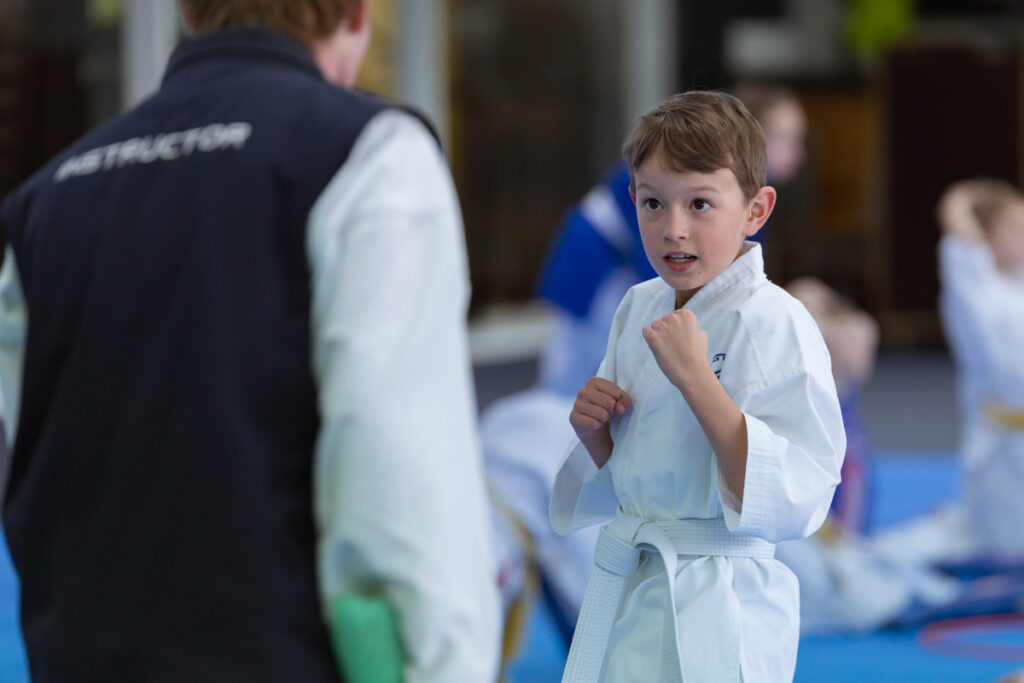
Bullying remains a prevalent issue affecting children’s mental health and well-being. This sport equips kids with practical self-defense skills, offering a sense of empowerment and security.
As children develop physical strength, they also cultivate emotional resilience, which serves as a powerful deterrent against potential bullies. Moreover, the confidence gained through this sport enables children to stand up for themselves and others, fostering a safe and inclusive environment where bullying is less likely to thrive.
Karate’s Impact on Promoting a Positive Body Image
The media and societal pressures often contribute to body image concerns in children, leading to adverse mental health effects. As a non-competitive sport, emphasizes personal growth and self-improvement rather than appearance.
Children of all body types can excel, leading to a more positive body image and increased self-acceptance. This aspect of this sport helps kids focus on their abilities and accomplishments, building a healthier relationship with their bodies and fostering a confident and contented mindset.
Understanding the Potential Drawbacks or Challenges of Karate on Mental Health
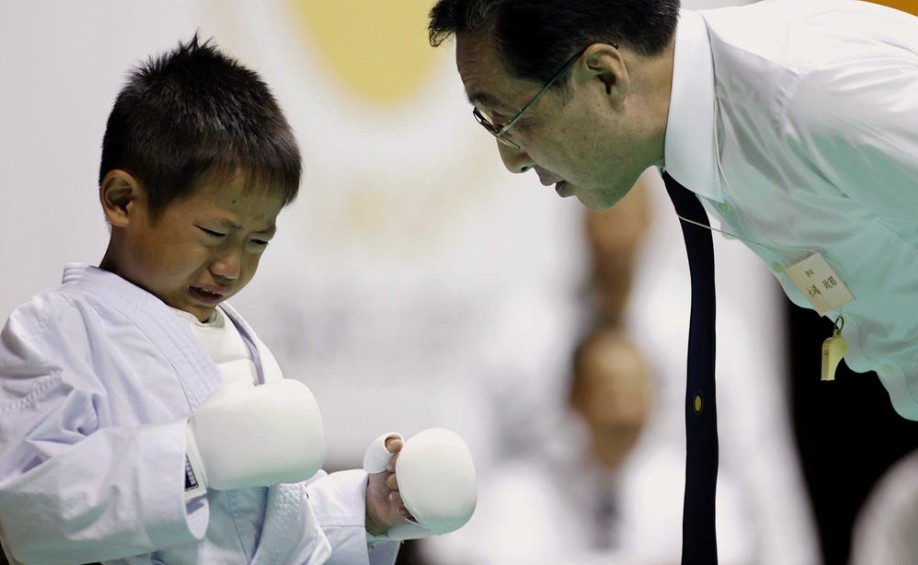
While karate offers numerous benefits for children’s mental health, it is essential to acknowledge potential challenges. Intense training schedules or unrealistic expectations from parents and instructors can lead to stress and burnout.
It is crucial to strike a balance between karate practice and other activities, ensuring children have time for relaxation and socialization. Additionally, any sport involving physical contact carries a risk of injury, underscoring the importance of proper supervision and safety measures.
Conclusion: Summarizing the Overall Impact of Karate on Kids’ Mental Health
In conclusion, karate offers a myriad of positive influences on children’s mental health. From building self-confidence and emotional resilience to fostering discipline, focus, and social skills, the psychological benefits of engaging in practice are vast. It serves as a holistic approach to nurturing a child’s mental well-being, equipping them with valuable life skills that extend beyond the dojo.
Nevertheless, it is essential to approach karate with a balanced perspective, considering individual needs and potential challenges. Ultimately, when practiced responsibly and with proper guidance, karate can be a transformative force for children’s mental health and personal growth.




